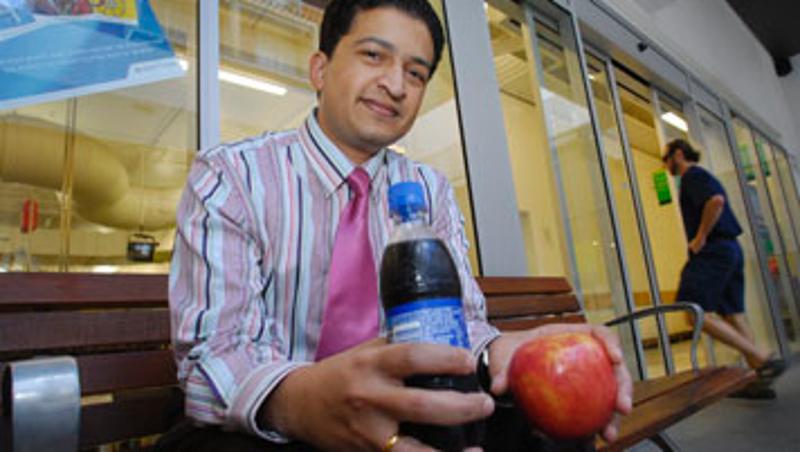
The Australian Government needs to regulate laws concerning junk food advertising directed at children if the current rates of childhood obesity are ever to reduce, according to a QUT researcher.
Dr Vinesh Oommen, a Senior Research Assistant at Queensland University of Technology's Institute of Health and Biomedical Innovation (IHBI), has compared the food advertising policies of seven Organisation for Economic Co-operation and Development countries, focussing mainly on advertisements for junk food which were aimed at children.
Of the seven countries, Australia's policies with regards to advertising aimed at children ranked sixth in effectiveness, behind the USA.
"This means it has one of the poorest standards of food advertising, there is pretty much no limit to the type of food which is being advertised," said Dr Oommen.
"TV advertising has a big influence, and children now watch more TV than in previous years, so there needs to be some guidelines about the advertising shown.
"The television is often used as a babysitting tool, and if a child is sitting through more than an hour of television, then he or she is seeing a lot of advertisements, which influences a child's perception.
"If the level of junk food advertising does not change, I don't think the rates of obesity among children will go down, and at the moment, one in four children in this country are overweight or obese."
Dr Oommen said advertising aimed at children was based around "pester power", meaning the item would look so tempting to a child, he or she pestered their parents until they gave in.
"Research has shown that around one in 10 parents regularly take their children straight from school to a fast food place, and the amount of advertising is the main causative factor," said Dr Oommen.
The study found that Sweden and Norway had the strictest policies on food advertising, and the UK had recently introduced heavier restrictions.
Canada and New Zealand were the other countries included in the study.
"At an international level, the World Health Organisation has condemned food and beverage advertisements that exploit children's innocence, and the government here needs to start taking notice of that, and make a lot of changes," said Dr Oommen.
"The government often say that tackling obesity is one of their highest priorities, but the current guidelines in relation to food advertising are weak, and that is one of the main things which need to change."
Media contact: Sharon Thompson, Media Officer - 3138 4494 or sharon.thompson@qut.edu.au


